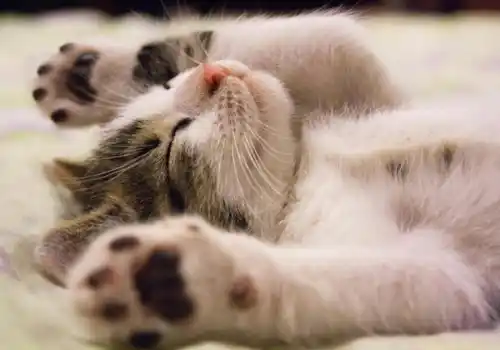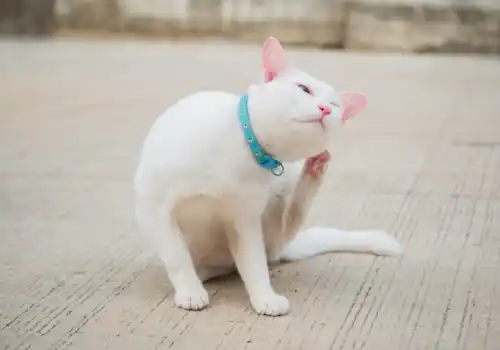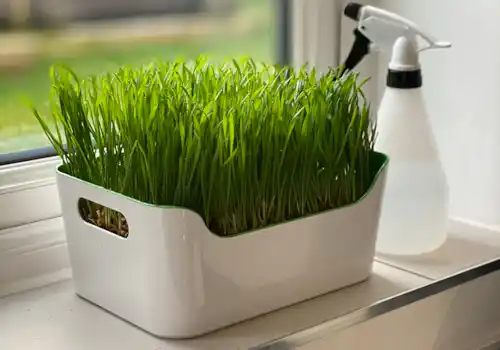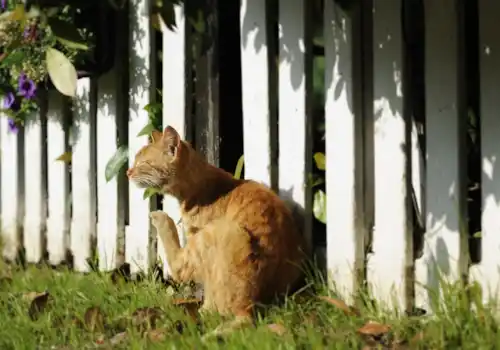Herbalism has been integral to the medical traditions of cultures in China and India. Vet Holly Mash discusses how herbs can help your cat...
Vet Holly Mash says: Herbalism has been integral to the medical traditions of cultures in China and India, as well as Western
Europe, for thousands of years. One of the earliest records of animals being treated with herbs was in the Ayurvedic 'Nakul Samhita', a treatise written between 4500 and 1600 BCE. Since then, veterinary botanical medicine has grown and spread, and as recently as the 1960s herbal formulas were listed in veterinary textbooks and considered as orthodox medicine.
Nowadays, more and more vets are turning to natural medicine and training in veterinary herbalism. From allergies to asthma, arthritis, eczema, gingivitis and constipation, herbs can be used to help ease a number of conditions in our feline friends.
How does it work?
With the majority of our modern drugs, including veterinary ones, derived from plants, nature's healing properties are well known.
Herbs provide us with a great variety of pharmacologically active ingredients, called phytochemicals. Herbs can be used effectively as medicines in their own right, or in conjunction with conventional drugs. It's also true that herbs are foods, with their culinary qualities being just as important as their medicinal ones. Indeed, some cats have retained their natural instincts to self-medicate when they are feeling unwell and seek out couch grass to chew, which seems to help them regurgitate food that didn't agree with them or to bring up a hairball.
Mother Nature's medicine chest
The plant world provides the basis for most medicines we use today. For example, the active principle in the painkiller morphine comes from the poppy, that of the heart drug digitalis from the foxglove, and more recently an important cancer drug has been derived from the periwinkle.
However, these pharmaceutical medicines will only contain a single active component, or extract of the plant, whereas in herbal medicine the whole thing is used. This is because the rest of the herb provides important nutrients and phytochemicals that support the rest of the body. Therefore, using the whole leaf, root, flower or seed ensures that the variety of compounds that occur naturally in the plant are available for the body to use, giving it a holistic action without the side effects that refined pharmaceutical compounds can cause.
My cat?
Cats, out of all domestic animals, can be extra sensitive to herbs due to differences in their metabolic pathways that don't allow them to detoxify certain plants in the same way that dogs and other animals do. This is related to them being true carnivores and their bodies not being well adapted to using plant material.
Herbs can be given to your cat in a variety of different ways - but cats are usually tricky to medicate. They are very sensitive to the smell and taste of alcohol, and most herbal tinctures are alcohol based. This is the reason that glycerin-based tinctures will be the most palatable option, and hence the preferred way of adminstering herbal medicine for cats.
Another, less problematic formulation may be to use herbal tablets or capsules. These contain either powdered dried herbs, or freeze-dried extracts, available from specialist pet shops and herbalists. Products formulated especially for cats will have the dosage on the label; otherwise your veterinary herbalist will guide you.
Find a herbalist
Seeking the advice of a specialist vet is always essential when using any herbal medicine for your cat. This is because any herb has the potential to be harmful, as well as healing, especially in cats where their metabolism makes them uniquely susceptible to toxicity. Herbs can cause side effects, such as vomiting or diarrhoea, or your cat may have an allergic reaction, and they can also interact with any conventional medications and other supplements your cat may be taking. Therefore it is essential that you seek veterinary guidance when using any herbs for your cat.
The British Association of Veterinary Herbalists represents veterinary surgeons trained in herbal medicine. Find a vet at www.herbalvets.org.uk

Herbalism at home
1. Catnip (Nepeta cataria) is like a feline aphrodisiac. Scientists have studied cats' unique behavioural reactions to catnip and have linked them to a special chemical stimulus that it triggers their olfactory system, making them respond to its certain smell. These behaviours include chewing and sniffing as associated with feeding, rolling and rubbing as associated with female sexual behaviour, and a type of kicking and pouncing associated with predation and play.
2. A visit to the vets is important for any cat bite abscess. However, in addition to this, you can help to speed healing with the use of the Cleavers herb, (Galium aparine), given as a tea on your cat's food. This can help to drain the lymphatic system and clear infection after an abscess.
3. Gingivitis is the early stage of gum disease where the gums become red, swollen and may bleed. If left untreated gingivitis can lead to periodontal disease and eventually loss of teeth. The following herbs/natural products can be rubbed directly onto the gums using your fingers, or a cotton bud: Manuka honey, propolis, sage oil, or bruised, fresh sage leaves.







